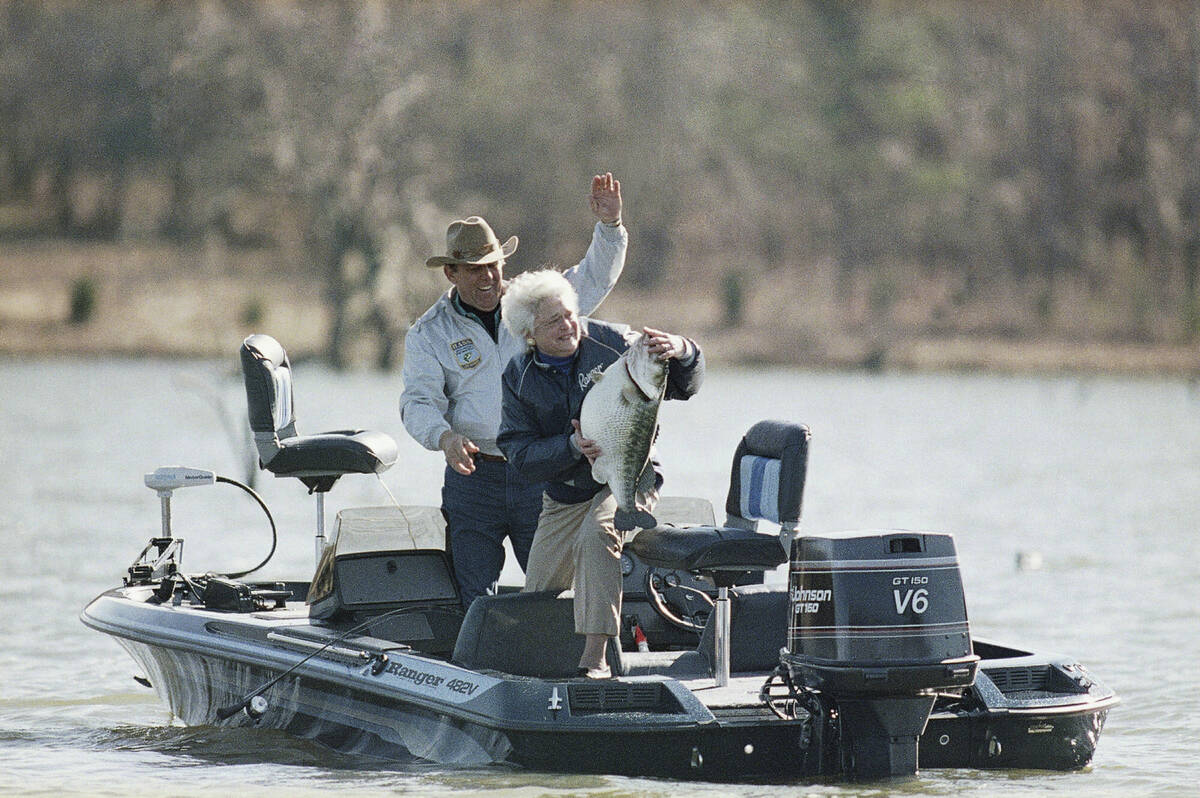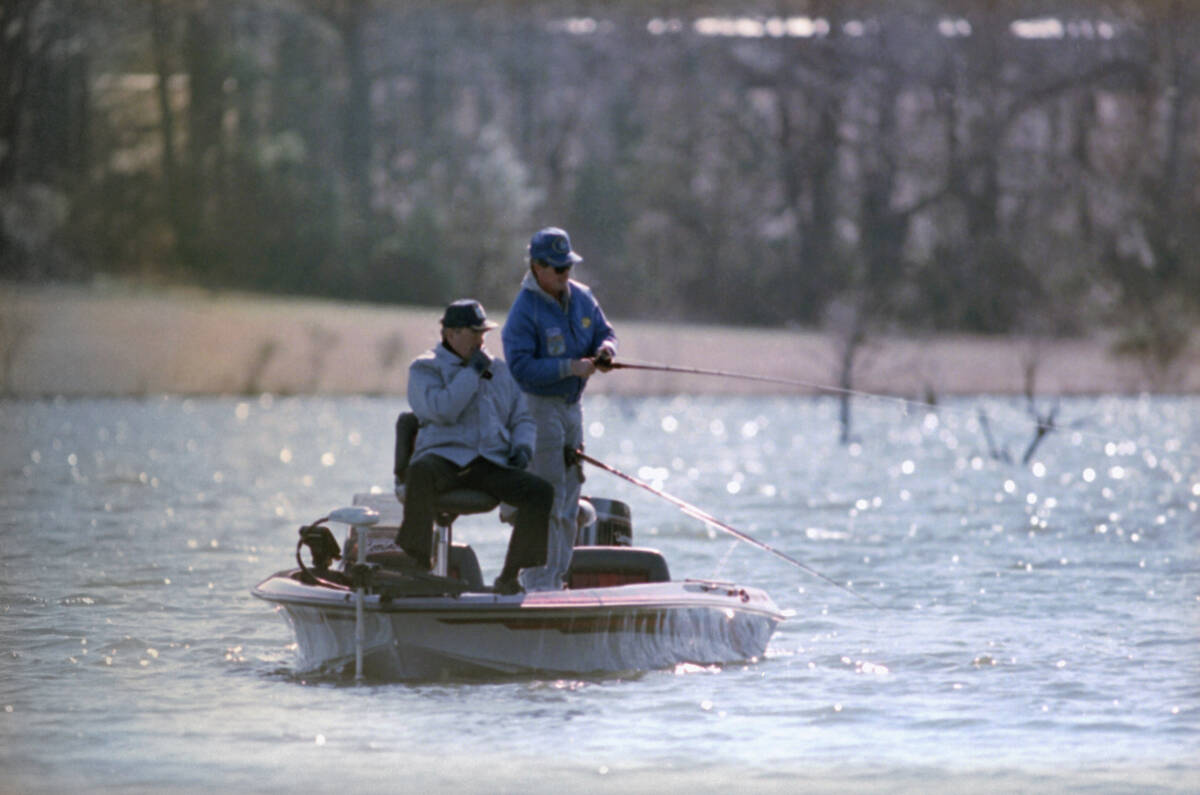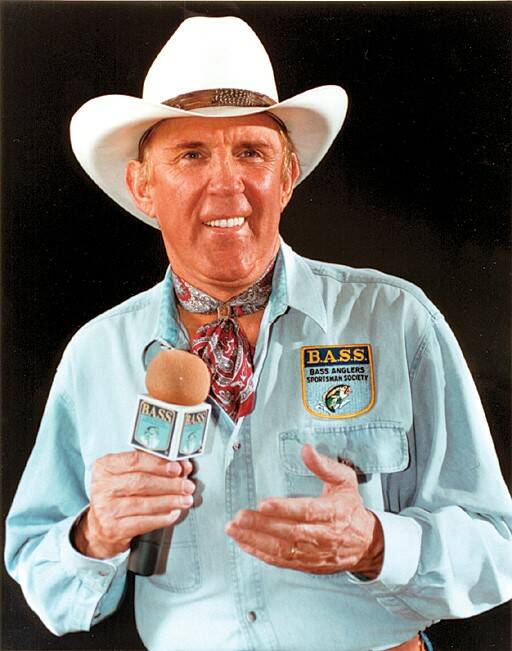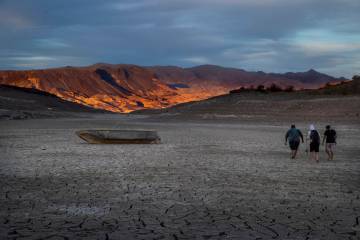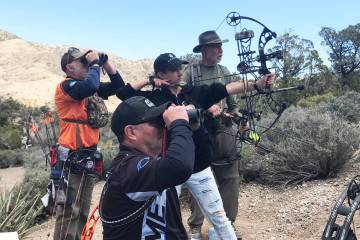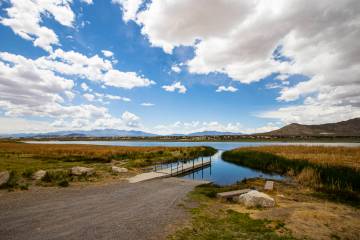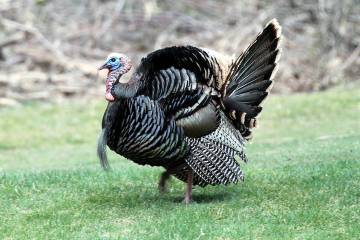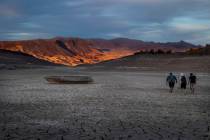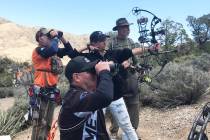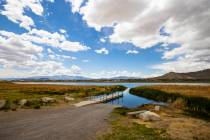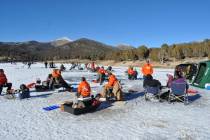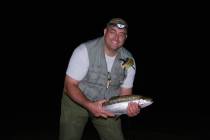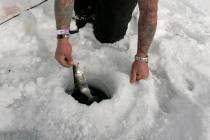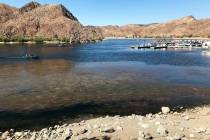Ray Scott put Lake Mead on map as premier bass fishing destination
In the years following completion of the Hoover Dam, the reservoir it created soon gained the attention of anglers who enjoyed pursuing largemouth bass.
But credit for establishing Lake Mead as one of America’s toughest and top bass fishing destinations belongs to Ray Scott, founder of the Bass Anglers Sportsman Society (B.A.S.S.) and father of modern bass fishing, who died Sunday at age 88.
The Alabama native put the spotlight on Lake Mead in 1971 when he invited 24 anglers to participate in the inaugural Bassmaster Classic, an event that eventually became the Super Bowl of competitive bass fishing. He shared the story of that first tournament with Las Vegas anglers during the first official gathering of the Nevada Bass Federation in December 2006.
“You get a big fire from an itty-bitty spark,” Scott told the anglers as he encouraged them in their efforts.
Those hand-picked competitors, he said, all flew on the same airplane, but when they climbed aboard, not one of them knew where they were going. It wasn’t until the plane reached cruising altitude that Scott told them where they would be fishing. He also made sure there were a handful of outdoor writers to cover the event.
When it was over, Bobby Murray won the tournament and took home the winning prize of $10,000.
Thereafter, tournament angling never would be the same. Neither would bass fishing. That itty-bitty spark started what would become a bass fishing movement, and the largemouth bass soon displaced trout at the top of the recreational fishing food chain with Scott as its most ardent cheerleader.
Changing the face of competitive angling is just what Scott set out to do when he created the B.A.S.S. organization and organized the first modern fishing tournament in 1967. Complete with a written set of rules, the tournament was designed to lift competitive angling above what he considered to be questionable practices of the so-called “fishing derbies.”
The most notable of the major changes Scott instituted was the practice of catch and release fishing during tournaments. Not only did he want to grow bass fishing, but he also wanted to preserve it. In 1972, Scott launched the “Don’t Kill Your Catch” campaign and required that all competitors in B.A.S.S. tournaments have aerated livewells on their boats to keep their catch alive.
A news release from B.A.S.S. credited Scott with saying, “I didn’t invent catch and release, but we did make it popular in bass fishing, and that changed the sport in so many ways. We preached that a bass is too valuable to be caught only once. We helped fishermen learn how great it felt to catch a 5- or 6-pound bass and then lean over and let it go and watch it swim away, hopefully to be caught again.”
Today that ethic is so ingrained within the fishing community that you see few anglers take a bass home. B.A.S.S. estimates that more than 90 percent of all bass anglers release most of the ones they catch.
As their popularity grew, the tournaments Scott created became proving grounds for about anything new: boats, motors, baits, rods, reels, electronics and other fishing-related products. Everyday anglers who follow the tournament circuit often make their choices based on what the pros are using. The bass fishing industry “has an economic impact in excess of $125 billion per year and employs more than 800,000 people nationwide,” according to B.A.S.S.
Scott is also known for his contributions to America’s conservation movement, boating safety and promotion of the Clean Water Act. If there ever was an itty-bitty spark that ignited something big, it was Ray Scott. On Sunday, the world lost that spark, but his influence remains.
Tight lines, Ray.
Freelance writer Doug Nielsen is a conservation educator for the Nevada Department of Wildlife. His “In the Outdoors” column is not affiliated with or endorsed by NDOW. Any opinions are his own. Find him on Facebook at @dougwritesoutdoors. He can be reached at intheoutdoorslv@gmail.com.



